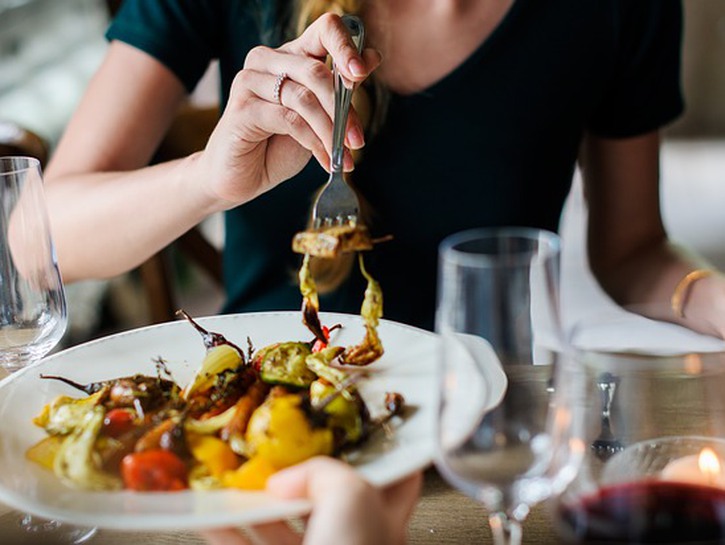Eating tons of food when you’re starving is inevitable. We don’t even need a five-star meal to entice us; sometimes a greasy heap of fast food is enough to ease rumbling stomachs. But, with the highs come the lows. In this case, the low takes shape in form of a food coma. You’ve no doubt dealt with one before and while it may feel like the end is nigh, we have all the remedies needed to curb food hangover symptoms.
Not to be confused for two different things, the food coma and food hangover are very much the same thing and they’re both a pain to deal with.
What Causes Food Hangovers/Comas?

Simply, food comas are induced by feasting on way too much the day before. Regardless of your meal, indulging in too much at once can lead to several unpleasant sensations such as:
- Bloating
- Fatigue
- Excess gas
- Tight feeling in stomach
- Nausea
Many of these symptoms are exacerbated when eating greasy foods or heavy meals. It sounds like a good idea on paper, but you should be mindful of what to expect before eating too much. You’ll save yourself from the symptoms.
How Do I Ease The Symptoms?
As unpleasant as a food hangover is, you can help alleviate the discomfort with several remedies.
For starters, tea will help soothe any nausea and bloating. It sounds like a nightmare to ingest anything else after you’ve eaten yourself into a food coma, but wait half an hour or so before reaching for tea. Ginger tea seriously helps with nausea and peppermint tea can lessen bloating.

Remember that it takes anywhere from six to eight hours for food to successfully pass through your system. So, when you wake up with a sore stomach, you could very well still be dealing with repercussions from the night before. We know it doesn’t sound like a good idea to stuff more food in your stomach, but you need to eat breakfast the next morning. Healthy options like fruit (in moderation) or oatmeal are recommended.
Ease up on the sugary stuff or anything packed with carbs. Your body needs to flush everything out of its system and loading up on unhealthy stuff is bound to make things worse. However, don’t nix out carbs altogether; complex carbohydrates found in brown rice or oatmeal is a-okay for your system.
That said, fruits are also packed with sugar, which could lead to trouble when dealing with a food coma. Throughout the day you’d do better to eat vegetables instead as they won’t worsen any lingering symptoms. Don’t swear off fruits, though. In moderation, fruit can help with food coma symptoms.

Going for a short walk after eating can also help your system digest food and ease your symptoms. It might take a lot of convincing for those suffering to get up, but you’ll be all the better for it.
Prevention Tips
An obvious prevention tip is to not eat as much, even when you’re starving. Be aware of past food comas and the symptoms you’re bound to feel if you wolf down tons of food. Take your time and eat what’s required.
Oftentimes, our brain confuses hunger with dehydration. The brain sends similar signals to your body when you’re thirsty and hungry, confusing us and frequently leading to eating rather than a glass of water. Have a glass of water half an hour before eating so your body fills up a bit before the meal. It’ll help stop you from eating so much and could also end the sensation of hunger if your brain confused it with dehydration.
Final Notes

Gorging on food to subside hunger is a good idea on paper, but you’ll feel it soon after when bloating or cramping sneaks up on you. Avoid food comas by drinking water before meals and not eating as much. Basically, try to remember how the coma feels and remember it for next time. It’s sort of like a hangover; it may take a couple hundred times to learn the lesson, but you’ll learn it eventually…
